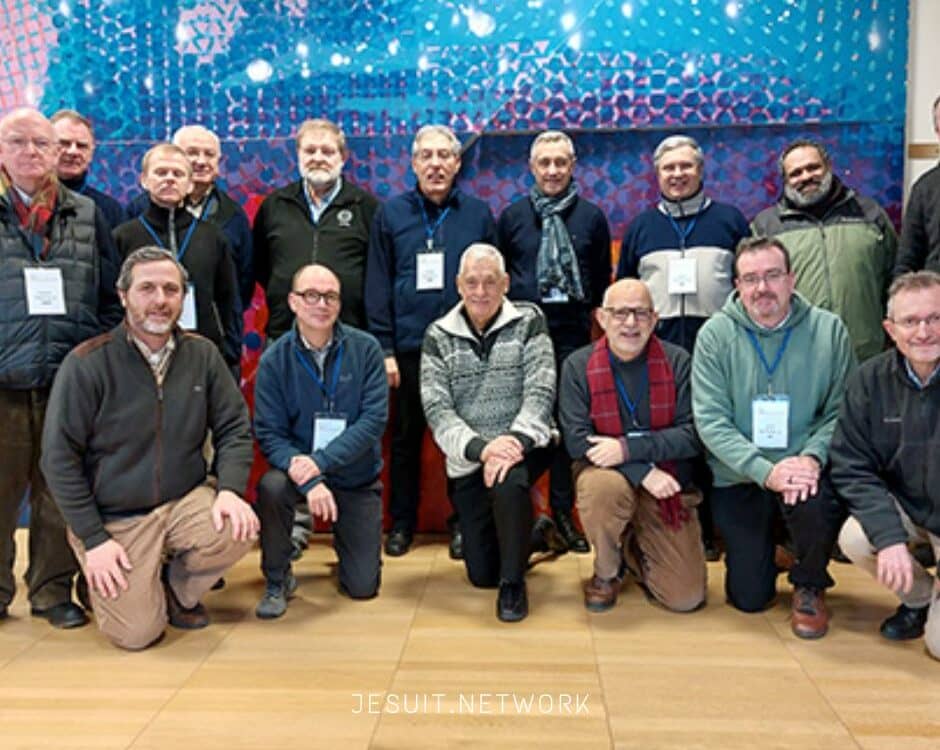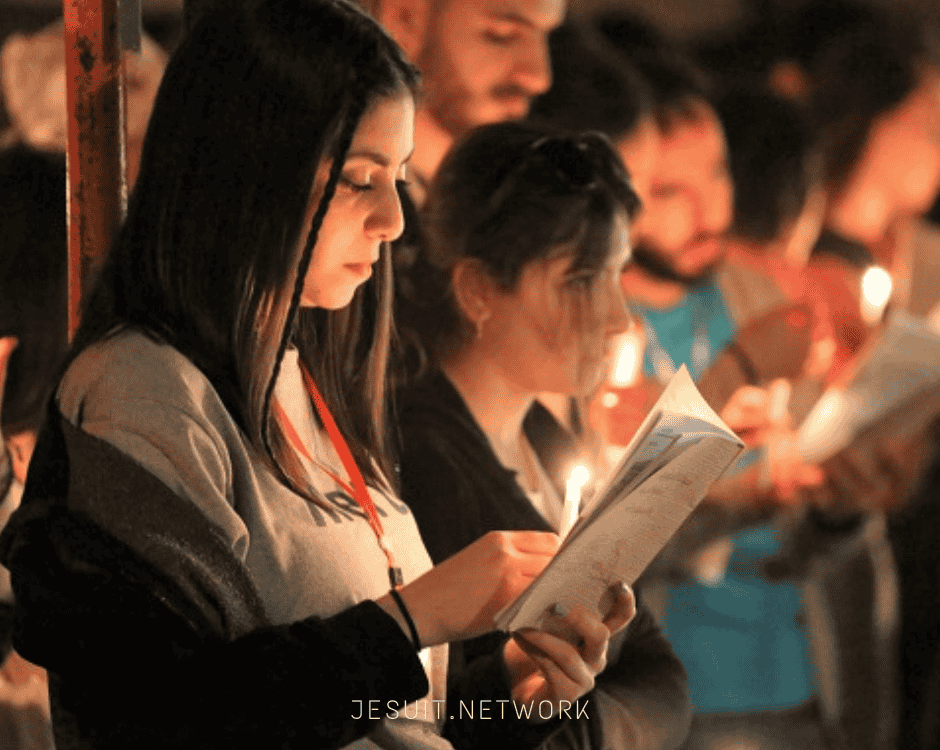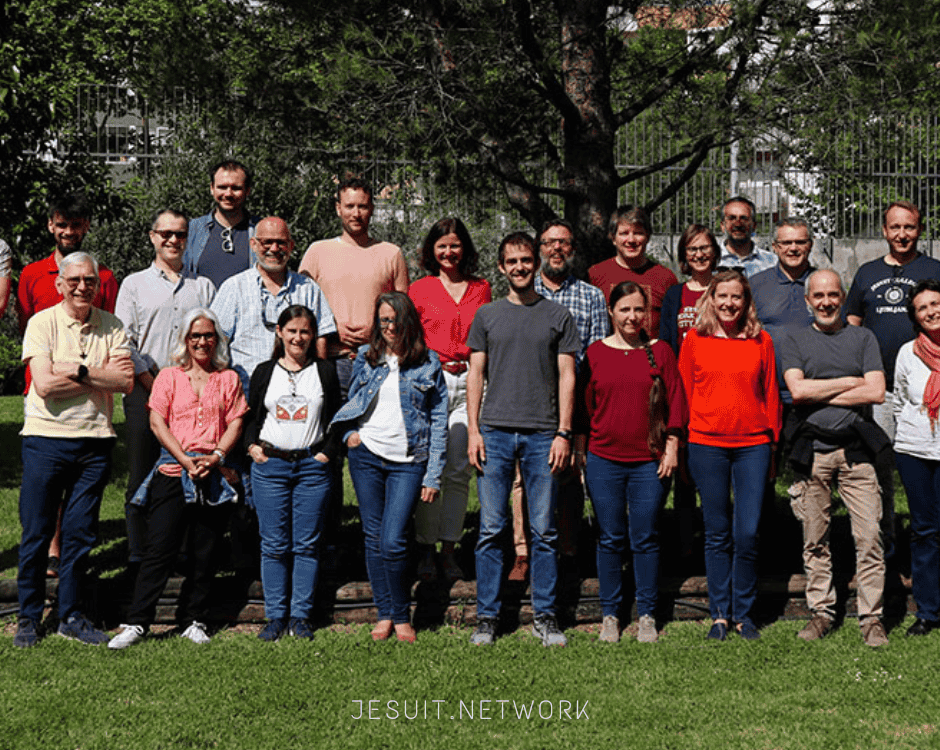This website uses cookies so that we can provide you with the best user experience possible. Cookie information is stored in your browser and performs functions such as recognising you when you return to our website and helping our team to understand which sections of the website you find most interesting and useful.
Ecological Summer Camp 2023
“The only revolution that will triumph is the revolution of our hearts.”
For the third time, the Lassalle-Haus in Switzerland is hosting the ECO Summer Camp, a week-long exchange on large-scale socio-ecological transformation and small-scale approaches to solutions themselves. The goal is none other than to change the world. How can it work? An interview with Jesuit Valerio Ciriello on the climate crisis, revolution and what can really change lives. This interview has been published in German at the web of the Jesuits in Central Europe
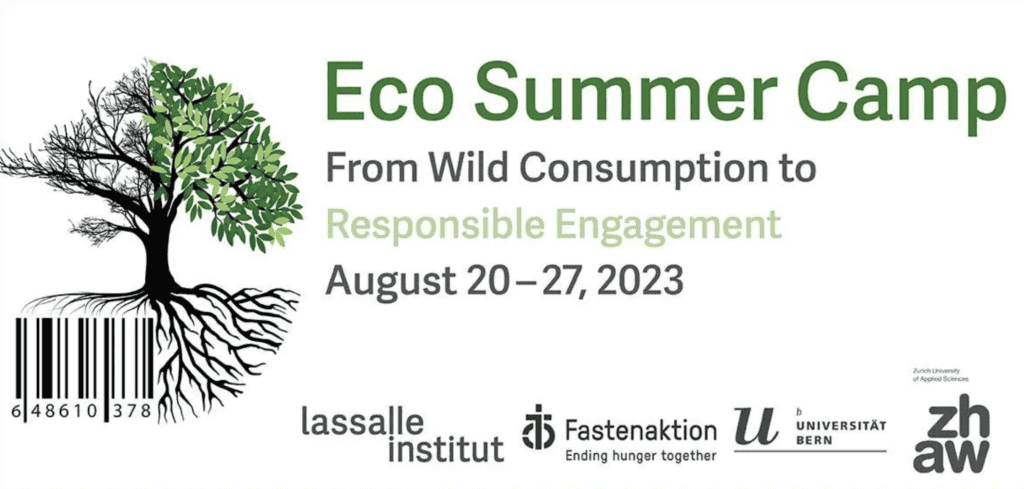
What is the basic idea of the ECO Summer Camp?
The idea is based on the realization that, although today we know very well how bad the ecological and social situation in the world is and that we can also name very precisely what we need to change, we still do not do so sufficiently. And by this I am not only referring to politics, but to each one of us: we fly to the Mediterranean to bathe, we eat too much meat, and so on. In the concrete, personal sphere, most people often find the revolution the world needs very difficult. Pure knowledge does not help to make big changes. This is the starting point of the ECO Summer Camp: How can we set in motion the socio-ecological transformation we know is necessary?
And how?
For us to be active, we have to touch more than just the mind inside us. The impetus for personal behavioral change has to come from elsewhere, at the relational level. When people exchange, discuss, chafe, even argue, when they allow themselves to be inspired by others, seek consensus, agree on things and feel accountable to each other to put them into practice as well, then the purely rational becomes a holistic approach to change. Any conversion, to use an evangelical term, always takes place in the encounter at the level of the eyes of others, and not by pointing out the speck in the other’s eye.
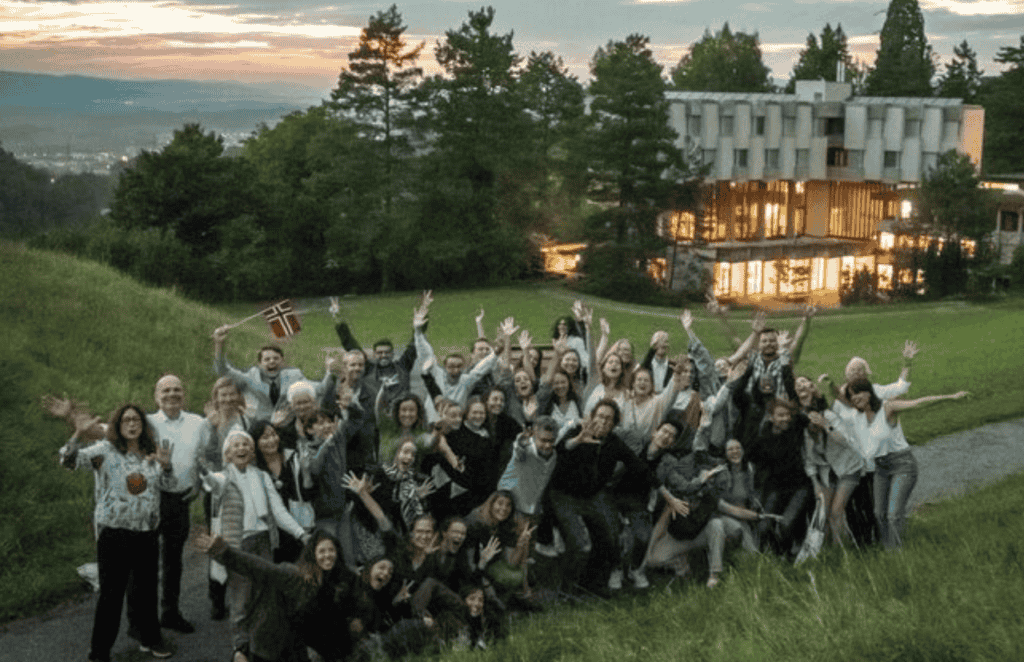
Why is mere understanding of a problem often not enough for real change?
Because as human beings we have hands and a heart as well as a head, and we have to address all levels to really change something. This is why Pope Francis talks about holistic human development in the encyclical Laudato si’. Each of us knows behaviors that we really should stop or change. And yet we don’t. The head alone is not enough, not even for us Jesuits. And you cannot force changes in people’s hearts, neither through insight, nor through regulations or coercion.
What is holding us back?
Often it is a lack of confidence, a lack of assurance that we are still capable of making a difference. This is true on both small and large scales. From a religious point of view, too often we are too small-minded, and let me add: also too small-minded. But Jesus encourages us to have great faith: have faith, do not be afraid. These are the basic requirements for freeing ourselves from our small and great securities, so that we can grow and live as truly free people.
Is that the basic concept of the ECO Summer Camp?
Yes, it is intended to be a week that can change the lives of the participants. It is somewhat comparable to spiritual retreats, where we also clear the inner stage through certain formats and see what then develops in us, what calls us. We also want to make this process possible for the participants of the summer camp.
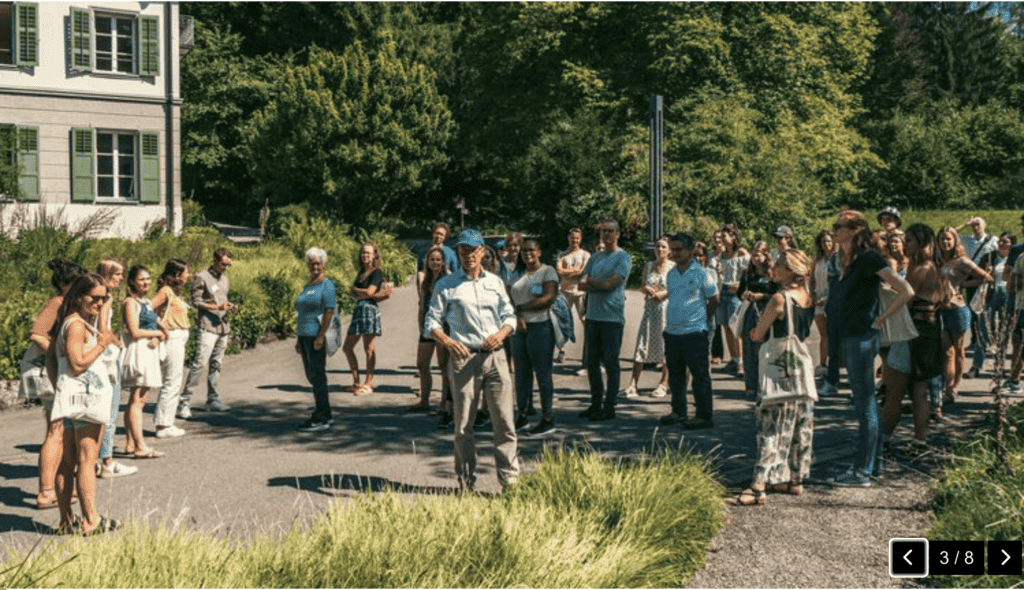
How does it work?
Offering very different formats of meeting and exchange. Starting with the fact that all the speakers stay there and stay overnight at least once, some even stay the whole week. They don’t just give a lecture and leave immediately, but remain available for exchange. In addition to the usual lectures and workshops, there are also walks, excursions, dinners and cocktail parties, round tables, campfire talks and reflection activities. The aim is to have as many eye-level encounters and exchanges as possible, in both directions: experts on the one hand and participants on the other have something to say to each other, and we want to create the space for this. In this way, they can inspire each other and develop relationships instead of reducing the other person to their knowledge alone.
Who participates in the camp?
This year there are about fifty participants in total, the group is very heterogeneous. We have received applications from 16 countries, and they are not only young people. A quarter are over 35 years old, and there are also retired people. Christians are in the minority. The political spectrum ranges from middle class to progressive. All walks of life are welcome and enrich the exchange.
How did you come up with this idea?
First of all, of course, there is my personal motivation. I’ve been a member of the Italian Green Party since I was 18, although it has nowhere near the relevance of the Greens in Germany, for example. But I was never particularly active. What changed my life were the encounters during my theology studies in Paris, especially with Sister Cécile Renouard and my colleague Gaël Giraud. They encouraged me to approach socio-ecological transformation. I learned that it is the encounter and the relationship with other people that can change a person, and therefore the world, and not theoretical concepts, much less ideological struggles. Because much of our behavior does not take place on the rational plane, but on the unconscious, also on the emotional plane.
Is social-ecological transformation an emotional issue?
As far as the facts are concerned, no, we do not. But if we really want it to work, rather yes. In our increasingly polarized and fragmented society, we do not need more division, more ideological battles, more division between good and evil. What we need for transformation to succeed is love and wisdom. We need to want to know the other person, to accept him or her and not fight against him or her. The only revolution that will succeed is the one that takes place in our hearts, not in the streets!
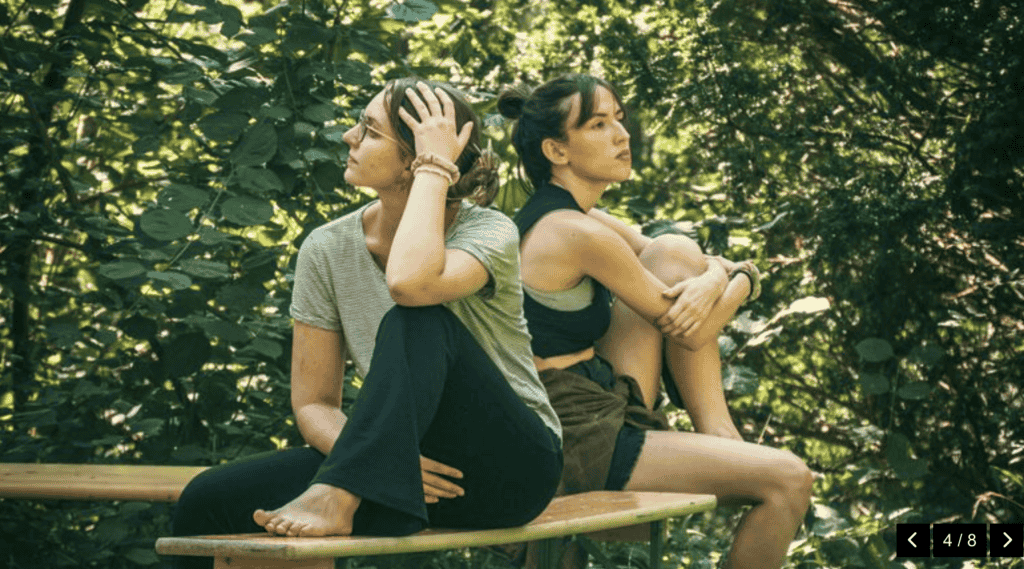
An interesting reflection.
Look at the revolutions that were based solely on the mind, on analyzing a problem and setting a goal, the French Revolution for example, also the Leninist revolution in Russia. Those revolutions, in the streets of history, do not change people permanently. At some point they eat their own children. It is not the concepts that change the world and even less the ideologies, but in the end it is a very personal path, also spiritual, of each individual. Moreover, as Aristotle already said, man as a social and political being must seek a relationship with others in order to fully develop the potential of his own being. For the benefit of all!
How do you see the revolution as it is currently being attempted by the Last Generation?
We could discuss it at length, but if I am honest: with considerable skepticism. I see here a rather prohibitive approach, imposing moral prescriptions. A clear separation between good and evil. But that is ultimately ideology, and ideology tends to close hearts rather than open them. At Eco Summer Camp, we want the opposite: no radicalization, no prohibitionism, no moral preaching, no polarization. But changes within people and in their relationship with others. That is where the space for revolution is. John F. Kennedy said: “That in the past, those who foolishly sought power by riding on the back of the tiger ended up inside. Those who were foolish enough to assume they could ride the tiger too often ended up inside it.
For a revolution of the heart, as you describe it, is one week of Summer Camp enough?
No. But we don’t expect a series of Saul experiences either, but rather we want to plant as many mustard seeds as possible in the Summer Camp, which will then grow. And we are also working on a permanent format to maintain the network that is created through the camps and allow for new exchanges. We are also thinking of local groups, each with its own dynamics.
At the end, all participants are asked to write a letter to themselves with the changes they intend to make. Six months after the camp, you send the sealed letters to the participants. What might be in your letter to yourself?
Less talking and more doing. And in doing, more consistency and coherence with your own being.
Campamento Ecológico de Verano: ¡más información!
Interview: Gerd Henghuber Original Link: https://www.jesuiten.org/news/eco-summer-camp-2023-die-einzige-revolution-die-gelingen-wird-ist-die-in-unseren-herzen-nicht-auf-den-strassen


